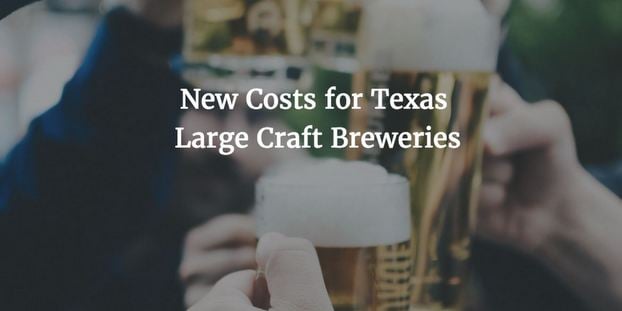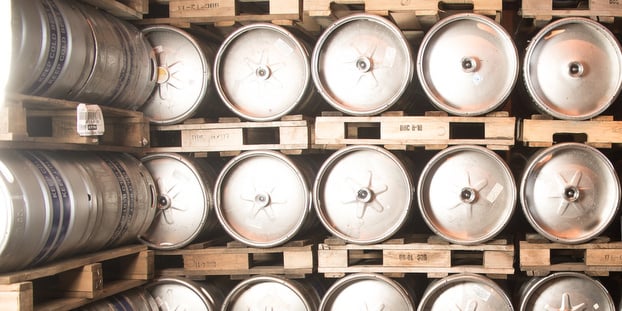A new bill in Texas would introduce a number of new regulations that increase the operation and distribution costs of large craft breweries in the state. House Bill 3287 has passed the senate with a vote on May 22, 2017. It has still not been signed into law.
The new regulations would limit certain breweries from operating tasting rooms. The bill includes exceptions to this rule but will incur new costs for the tasting rooms. The other major change is that the bill sets a limit to the quantity of beer that self-distributing breweries can sell on their own.
While wholesalers such as the Beer Alliance of Texas and the Wholesale Beer Distributors of Texas support the bill, craft breweries have expressed their concerns over the financial burden that it entails. Here are the changes that the bill would bring if it becomes law.
Tasting room limitations
The current text of House Bill 3287 does not allow breweries that produce more than 225,000 barrels of beer per year to sell on their premises. The barrel count is calculated to include the production of all fully or partially owned locations of the permit holder. If a brewery has less than 225,000 barrels, it can sell up to 5,000 barrels per year in its taproom.
The exceptions to the on-site sales rule include the following cases for breweries that pass the 225,000 barrel threshold:
● If a brewery was already operating on-premise sales as of February 1, 2017
● If a brewery produces less than 175,000 barrels on the selling premises
Unless they meet the parameters above, breweries will have to pay distributors in order to sell their own production in on-site taprooms.
The bill does not change the rest of the permit rules. Prior to engaging in any production or sales, manufacturers still have to obtain a state permit. They also provide a brewer’s bond required by federal authorities if their excise taxes are above $50,000. For excise taxes below $50,000 the bonding requirement has been eliminated as of the beginning of 2017.
Barrel number caps for self-distributing breweries
Another major point in the new bill affects self-distributing breweries. They can now sell only a total of 40,000 barrels across all their locations — owned directly or indirectly — or through an affiliate or subsidiary. Any amount of barrels above this limit has to be sold through a distributor.
Some experts have noted that this rule puts a cap on the development of local breweries such as Austin Beerworks and Live Oak Brewing. If they would like to keep their independence from wholesalers and distributors, they cannot expand their production beyond the set limit.
Protection for craft breweries or for beer corporations?
According to the lawmakers who have pushed the passing of HB 3287, the new law would protect local craft breweries from being engulfed by larger multistate or multinational companies. Supporters of the bill say its goal is to protect the three-tier system in Texas, which separates the regulation of brewers, distributors and retailers.
Proponents claim it would set clear rules on how beer giants purchase craft breweries in the state. More specifically, the bill does not allow a manufacturer of more than 225,000 barrels per year to buy more than 25 percent of another brewery or another type of ownership interest that would practically give the buyer full control over the purchased production location.
However, opponents such as the Texas Craft Brewers Guild see the same rules as targeted against new craft breweries in Texas. They believe the bill may lower investments in the existing 200+ breweries because of the limitations on, for example, self-distributing breweries’ expansion.
How do you see the effects of the new Texas bill on craft breweries in the state? Please share your thoughts in the comments.
Todd Bryant is the president and founder of Bryant Surety Bonds. He is a surety bonds expert with years of experience in helping business owners get bonded and start their business.







Leave a Reply
You must be logged in to post a comment.